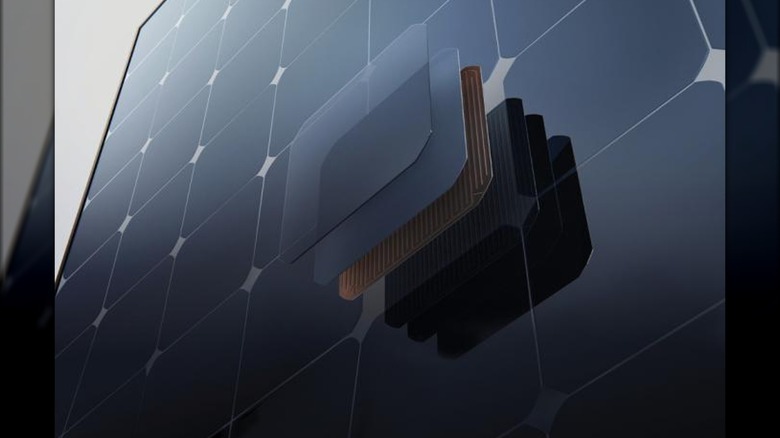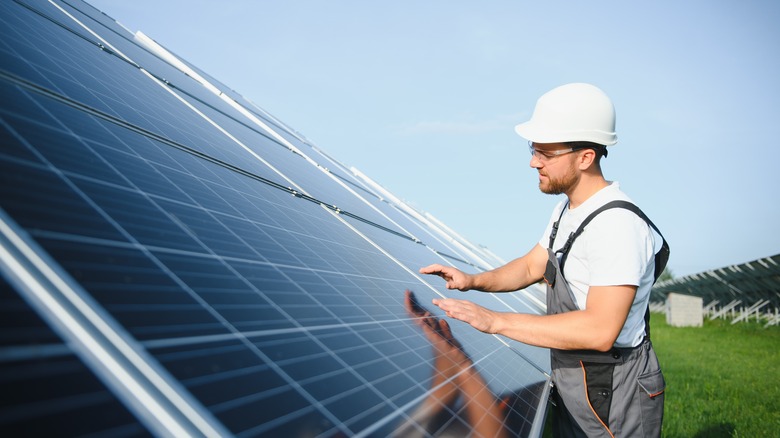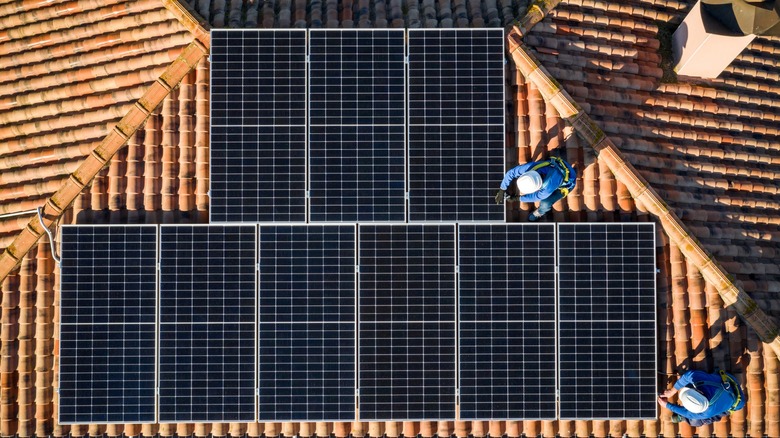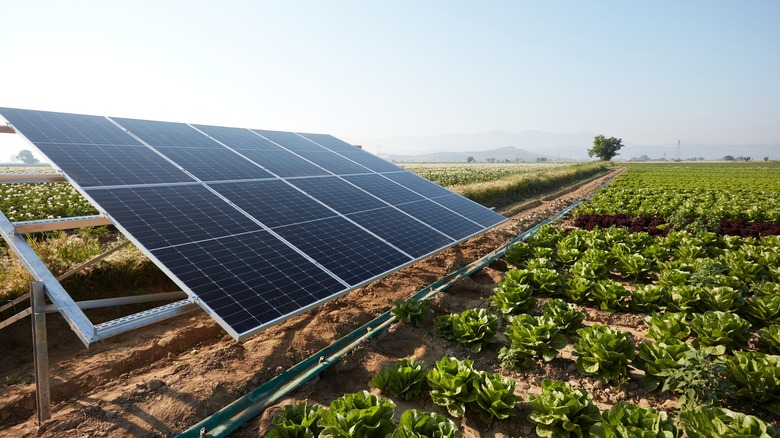Everything You Need To Know About SunPower Solar Panels In 2024
Humans have harnessed the sun's energy for heat and light in various ways for centuries. From housing designs featuring thermal mass heated by the sun, to solar powered ovens and greenhouses, the value of solar power isn't anything new. What is new is the rising efficiency and popularity of solar powered electrical system usage in business, home, and mobile camping applications.
Solar power, or photovoltaic (PV), efficiency and cost have come a long way from Charles Fritts' first rooftop solar array established in 1883 and the first solar powered spacecraft of the late 1950s. Early PV conversion rates rarely exceeded single digit percentages for efficiency, however, advancements though 1985 saw efficiency climb to 20 percent under ideal test conditions.
Today's experts recommend using solar panels with at least a 20 percent conversion rate. Typically, monocrystalline solar panels have the best conversion rates ranging from 17 to 24 percent. Polycrystalline and thin-film PV panels range from 12 to 17 percent and 7 to 12 percent respectively, but are less expensive options suitable for applications where the highest efficiency isn't required.
Are SunPower solar panels any good?
Currently, SunPower solar panels are rated at the top of the industry. SunPower began producing solar panels in the mid 1980s and continuously improved its processes and materials to gain its position as an industry leader as a solar solutions provider.
In 2020, SunPower spun off its solar panel manufacturing capabilities to form a new publicly traded company named Maxeon Solar Technologies. Maxeon Solar Technologies, based in the Philippines and headed by former SunPower executives, continued to produce SunPower solar panels through 2023. However, according to Solar Power World, the exclusive relationship between SunPower and Maxeon ended in March 2024.
According to an in-depth review by Energy Sage, SunPower solar panels, produced by Maxeon, are "efficient, effective, and expensive." SunPower solar panels provide efficiencies ranging from 20.3 to 23 percent and come with a 25-year warranty covering workmanship and performance of the entire system, including the panels. As a testament to its solar panels' quality, SunPower claims that only one in 20,000 panels are returned under warranty.
The upside to buying SunPower solar panels
Other than the peace of mind that comes with buying a quality product, one of the most compelling reasons to purchase SunPower solar panels is convenience. SunPower works with its customers every step of the way from designing a complete solar power system to fit their needs, to financing, providing installation services, system monitoring, and one of the best warranties in the business backing the entire system for 25 years.
Another advantage of SunPower's Maxeon solar panels stems from the panel's high efficiency rating. More efficient panels produce higher amounts of electricity from a smaller footprint. The amount of square footage available for solar panel placement depends on the size and shape of the home's roof. To further limit solar panel placement, most homes in North America have the highest amount of solar exposure on south facing rooftop surfaces. This situation makes using the most efficient solar panels possible imperative, especially as the price of electricity continues to climb and future electrical needs expand as electric vehicles become more popular.
Reasons to look at solar panels from other brands
One of the main reasons to look at other brands is SunPower's high cost. We'll consider the cost of a grid-tied 10,000 watt (10kW) solar power system as it's a common size solar power system capable of powering the needs of an average home. A system like this includes solar panels, racking, inverters, and installation. It provides power while the sun is up but lacks power storage as it relies on the electric grid for power after dark.
Energy Sage reports that a grid-tied 10,000 watt (10kW) solar power system from SunPower costs between $3.15 to $3.97 per watt, or $31,500 to $39,700 total, before any tax incentives and rebates. EcoWatch reports the national average cost for the same sized system is as low as $26,600, while Energy Sage puts the average national price at $27,700.
Another reason to consider other options is the possible decline in SunPower's quality standards as it explores other suppliers for its solar panels. While a quality decline isn't a foregone conclusion, it's worth the extra diligence prior to making an investment. Also, it's advisable to look for other companies offering Maxeon's solar panels as increased competition among suppliers could reduce complete system prices.



